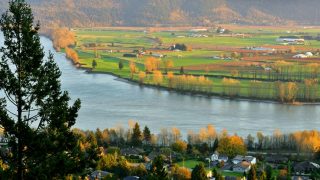
Those who think that Nigeria does not have what it takes for global competitiveness in the knowledge economy should better have a rethink.
With the innovative skills shown by the talented Nigerian students, there are positive signals that the country will not left out in the 21st century knowledge society.
Just this summer, no fewer than seven students from both public and private schools will showcase their creative skills at the First Global Robot Challenges slated to hold in Washington, the United States of America with 149 other nations.
The students who are presently based in a tech studio, according to the promoters, were picked from different schools in Lagos. Many of them, it was learnt, have represented Nigeria in similar competitions in the past.
Founded by philanthropic inventor, Dean Kamen to inspire a passion for science and technology leadership and innovation among the world’s more than two billion youths, First Global provides the framework for an Olympics-style robotics event that drives home the importance of obtaining the science, technology, engineering, and mathematics (STEM) skills needed by future leaders to overcome the greatest challenges facing our world today and tomorrow.
“By engaging the students of the world in a collaborative competition to help solve the world’s most pressing problems, FIRST Global inspires students to learn the skills they will need to make the discoveries their parents and grandparents would consider miracles, fantasies, or just plain science fiction,” FIRST Global Founder Dean Kamen, said.
For the national coordinator of the programme in Nigeria, Mrs. Remi Willoughby, who addressed Technology Journalists at the weekend, “We need to fully address the evident deficit in science, technology, engineering and mathematics in our educational system. Research has shown that children will rather take courses in arts and commercial subjects than these ones. Unfortunately this is not helping us. The government needs to find a way to encourage more students to take these courses in the secondary and tertiary institutions.”
“We have gathered some of the best students in robotics to represent Nigeria in Washington. These students were picked based on their interest and performances in past competitions in Nigeria and internationally. We look forward to an exciting outing.”, Willoughby added.
Also speaking, the Managing Director, Aramex Nigeria and co-sponsor of the First Global project in Nigeria, Faisal Jarmakani described the opportunity as “timely”.
According to him, “Nigeria needs to find its place on the global map of technology in developing countries. Without any doubt this competition will dictate the future of technology advancement and we are seeing it happen in our very own eyes.”
He hinted that the decision to co-sponsor, with his brother Omar Jarmakani, is based on the need to encourage the youth to embrace technology and robotics. “This will further ignite their passion and bolster their skills – emboldening them to become mentors, advocates and professionals in the area of stem in Nigeria.”
According to Emeritus Professor of Physiology at the College of Medicine of the University of Lagos Soga Sofola, also a national coordinator of the First Global Olympics, the students have been spending time together since January, trying to master the rudiments of Robots design through tutorials in maths, physics and engineering including programming especially using Java, carried out by competent instructors.
They have also started building their robots since the arrival of the components, a couple of weeks ago, he said.


